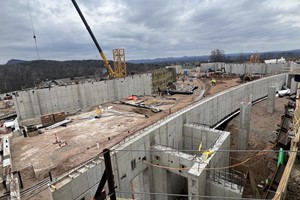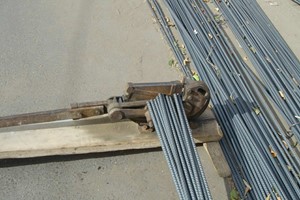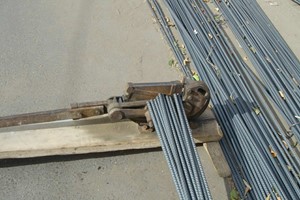Environmental experts highlight that the construction industry is responsible for over one-third of global greenhouse gas emissions. Researchers at the University of Massachusetts Amherst are endeavoring to enhance sustainability within the sector.
Kara Peterman, a professor of civil and environmental engineering at UMass, elucidates that emissions are generated at every phase of the construction process, particularly with steel production. “That could begin with the mining of iron ore, or it can begin with recycled scrap material, which is how a lot of steel in the U.S. starts off,” Peterman explained. “Then all the refining and all of the work required to make it into a quality structural product goes into that process and uses up a lot of energy and thus a lot of carbon.”
Peterman further noted that the process of collecting data on carbon usage is currently cumbersome and costly. To address this, her team has secured a $6.4 million federal grant, funded by President Joe Biden's Inflation Reduction Act. This grant will aid in gathering and standardizing data on carbon emissions, which will be provided freely with the support of steel industry groups. This initiative will enable builders to assess, “this material has expended this much carbon in its manufacture, and I’m trying to hit a certain sustainability or energy use target for my building. And so I might use this other material instead,” Peterman remarked. Such data will allow engineers, designers, and architects to make more informed decisions in the design and construction of structures.
Currently, there are no legal mandates requiring builders to consider sustainability, making the creation of Environmental Product Declarations (EPDs) voluntary. “Companies who have felt strongly about creating them have done so. And the larger companies who have lots of resources have done that,” Peterman noted. “But the smaller manufacturers, without as many resources, haven’t previously had the incentive to dedicate... time and money to it.”
Peterman anticipates that her team's efforts will eliminate most of the financial obstacles and include a training and educational component to ensure that builders understand the significance of sustainable materials and how to effectively utilize the data. The project is set to commence this fall.
By Karen Brown














